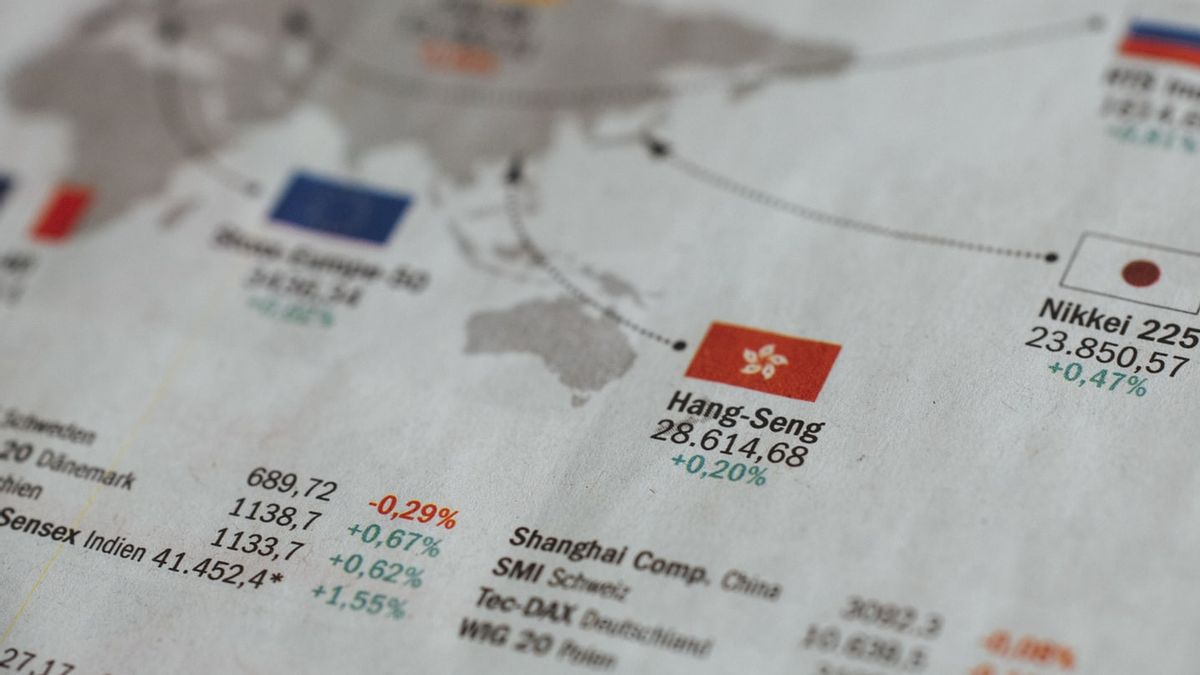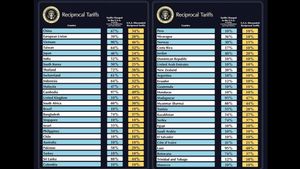JAKARTA - China's stock market must accept the harsh reality. After the Lunar New Year holiday since January 23, in today's trading the main indicator of China's stock exchange, the Shanghai Stock Exchange Composite Index, fell 7.72 percent to 2,746.61.
The Shenzhen Component Index, which tracks stocks on China's second bourse, closed down 8.45 percent at 9,779.67 points. The number of shares fell more than the increase, as many as 1,438 shares against 53 shares on the Shanghai stock exchange and 2,086 shares against 99 shares on the Shenzhen stock exchange.
The People's Bank of China (PBOC) previously attempted to calm the market by providing liquidity injections into the money market. The PBOC also cut lending rates by 10 basis points and limited some sales by brokers.
However, it seems that concerns about the increasing number of victims due to the corona virus outbreak are having a stronger impact on the market. Many stocks fall immediately to the exchange's allowable daily drop limit.
On the other hand, the scale of the outbreak remains unpredictable, and there are doubts it will have a major impact on China, the world's second-largest economy, at least in the short term.
"This pandemic or outbreak is not something that will only impact the market for a few days. It will last much longer," said Sun Jianbo, president of China Vision Capital in Beijing, quoted by Yahoo Finance, Monday, February 3.
The effects of the corona virus are felt across exchanges in China. The price of China's iron ore futures, which is the benchmark, has decreased to its daily limit of 8 percent, while the prices of crude oil and palm oil have also sunk.
The yield on China's most actively traded 10-year tenor government bond fell the most since 2014.
The English, Chinese, Japanese, Arabic, and French versions are automatically generated by the AI. So there may still be inaccuracies in translating, please always see Indonesian as our main language. (system supported by DigitalSiber.id)









